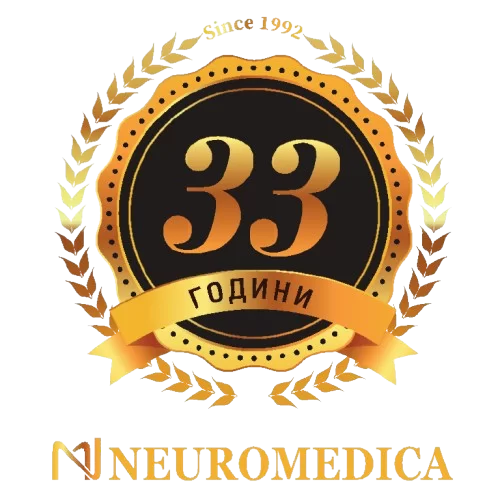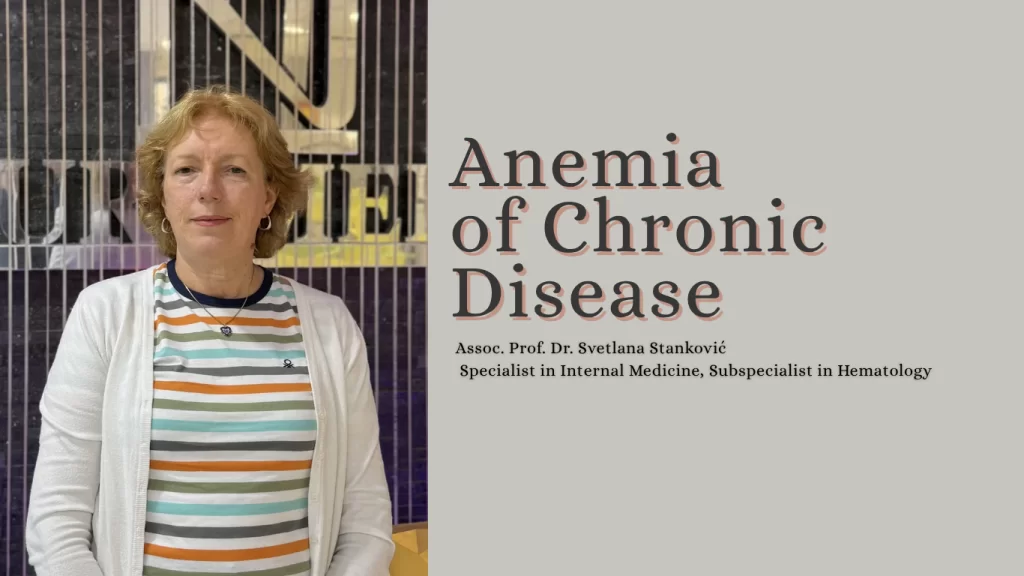Anemia of Chronic Disease
Anemia of Chronic Disease
Anemia associated with inflammation, also called anemia of chronic disease, is a type of anemia that affects people with conditions that cause inflammation such as infections, autoimmune diseases, malignancies, and chronic kidney disease.
What does the term anemia of chronic disease mean?
Anemia of chronic disease occurs when there is an autoimmune or other illness lasting more than 3 months that causes inflammation. Although iron reserves may be normal or increased, the body has difficulty utilizing iron to produce new red blood cells. Inflammatory molecules such as interleukin-6 stimulate the release of hepcidin, a hormone that blocks iron absorption and its release from storage sites.
Hepcidin is synthesized in the liver. One of its main effects is antagonizing the transmembrane iron transporter, thereby blocking absorption of iron through enterocytes in the gastrointestinal tract and release of iron from macrophages and the liver where it is stored. On the other hand, the erythrocytic enzyme erythroferrone, produced by erythroblasts, suppresses hepcidin levels, allowing greater access to iron necessary for red blood cell production and maturation. Normally, these two hormones function in a feedback loop, with erythroferrone playing the decisive role.
In cases of decreased hepcidin concentration, excessive deposition of iron occurs in cells and tissues. This is the case in hemochromatosis, where the feedback system does not function properly. Significant stimuli for hepcidin synthesis include infectious conditions, various types of neoplasms, and most chronic degenerative and systemic diseases. Blocking the use of iron by the body in such situations eventually results in anemia.
Who suffers from anemia of chronic disease?
Patients with:
Cancer
Chronic kidney disease
Congestive heart failure
Autoimmune diseases
Which autoimmune diseases cause anemia of chronic disease?
Rheumatoid arthritis: chronic inflammation of the joints
Systemic lupus erythematosus: when the immune system attacks the body’s own tissues
Vasculitis: inflammation of blood vessels
Sarcoidosis: inflammatory disease usually affecting the lungs and lymph nodes, likely caused by abnormal immune response
Inflammatory bowel diseases (Crohn’s disease, ulcerative colitis)
Irritable bowel syndrome
Any type of infection
Anemia of chronic disease is typically mild and usually does not cause significant discomfort. If symptoms occur, they may include weakness, fatigue, pale skin, shortness of breath, and dizziness.
How is anemia of chronic disease diagnosed?
Diagnosis requires evaluation of hemoglobin level, red blood cell count, serum iron, ferritin, transferrin, and reticulocytes. Generally, a chronic inflammatory condition should be present. It is characterized by microcytic or normocytic anemia and a low reticulocyte count. Serum iron is low, ferritin is normal or elevated, TIBC is low, transferrin is low, and reticulocytes are decreased. Red blood cells are usually normochromic, normocytic, but may also be hypochromic and microcytic.
How is anemia of chronic disease treated?
The primary focus is on managing the underlying chronic disease that causes inflammation. Treatment includes administration of other hematopoietic factors (vitamin B12, folic acid) and erythropoietin.
Does iron therapy improve anemia of chronic disease?
Oral iron supplementation is generally not recommended unless there is also iron deficiency. In some cases, it may even be harmful. Parenteral iron can be tried, but hepcidin often blocks its effective use. An exception is in patients with anemia due to chronic kidney disease, where intravenous iron can improve hemoglobin values even when ferritin levels are 500–1200 ng/ml. Treating the underlying disease will usually resolve the anemia by normalizing hepcidin levels. However, in many malignancies, the chances for a permanent cure are low. New research is focusing on developing hepcidin antagonists or regulators of hepcidin levels.
Therapeutic recommendations include administration of erythropoiesis-stimulating agents, blood transfusions when necessary, in addition to treating the underlying disease.
📌 Schedule your appointment with Assoc. Prof. Dr. Svetlana Stanković, Specialist in Internal Medicine and Hematology – every Tuesday and Thursday at Neuromedika! 🩸👩⚕️
📞 13 301
www.neuromedica.com.mk








